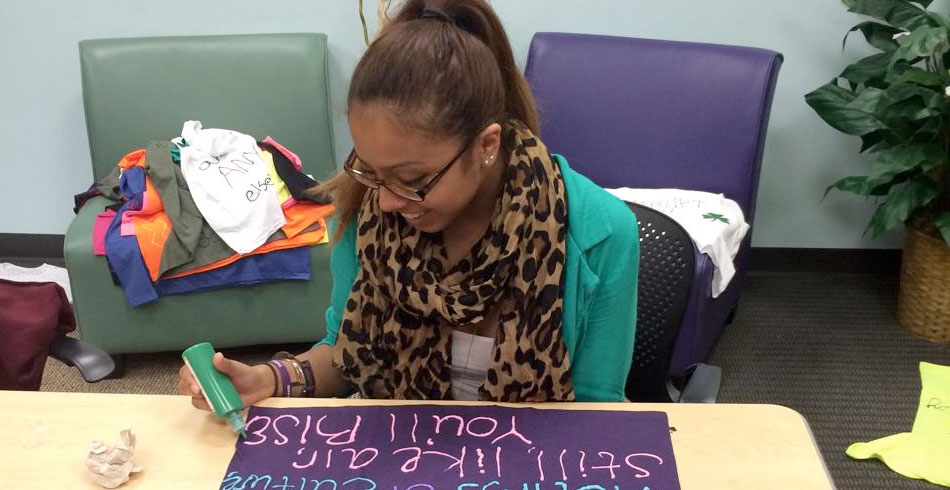- Apply
- Visit
- Request Info
- Give




The Women's Center offers workshops and trainings provided by staff and student ambassadors. Requests must be made by using the form below at least 10 business days in advance of the date being requested.
Trainer(s): Women’s Center Staff
Duration: 90 minutes
Bringing in the Bystander® is an evidence-based bystander intervention program. Rather than focusing strictly on the roles of perpetrator and victim, the highly interactive Bringing in the Bystander® curriculum uses a community responsibility approach. It teaches bystanders how to safely intervene in instances where sexual violence, relationship violence or stalking may be occurring or where there may be risk that it will occur.
Participants will:
Trainer(s): Women’s Center Staff and Student Ambassadors
Duration: 60-75 minutes
PEACE Workshop
Consider your role in relationships to identify healthy and unhealthy behaviors they bring to their relationships. Looking at various behaviors, students will have the opportunity to identify healthy and unhealthy relationship behaviors that show up in their family, friendships, and romantic relationships.
Participants will:
Please send any questions, concerns or workshop requests to the Women's Center at women-ctr@easternct.edu. Register for an upcoming workshop at tinyurl.com/theWCWorkshops.